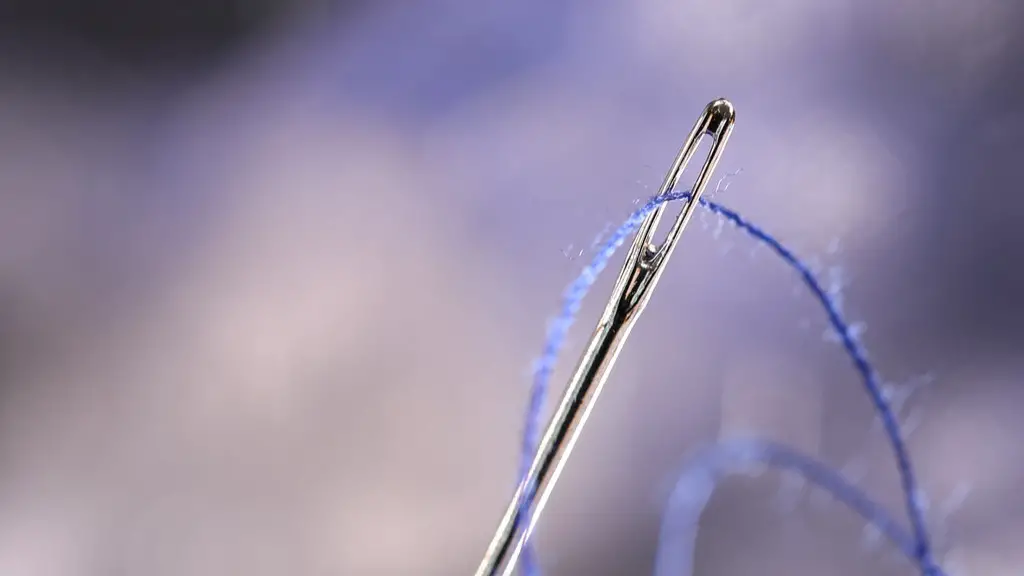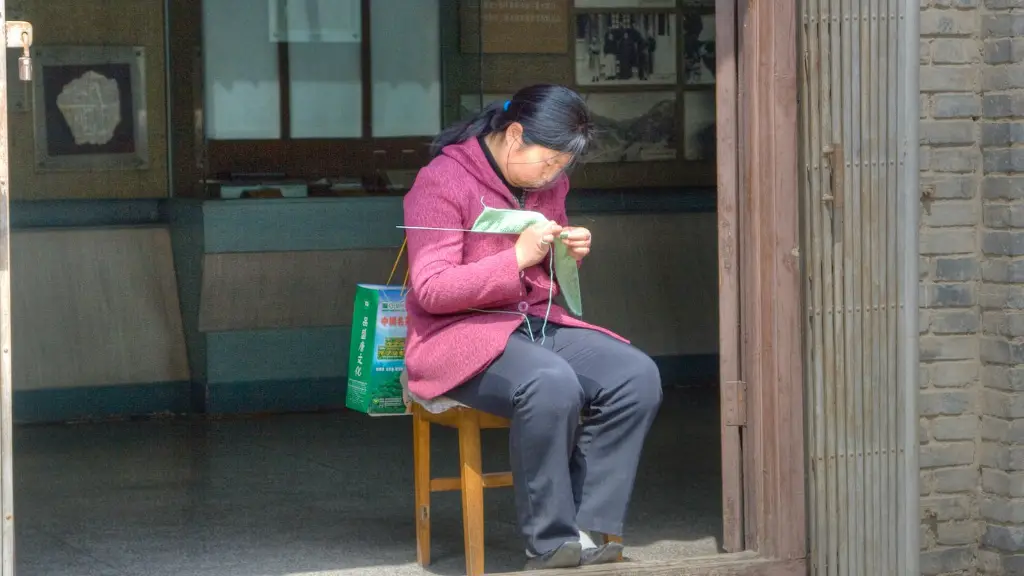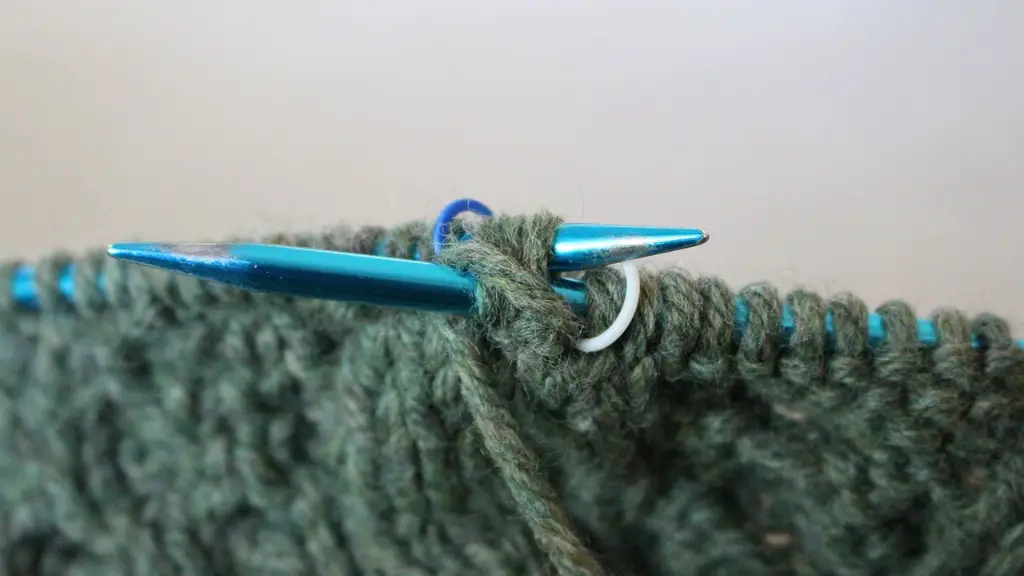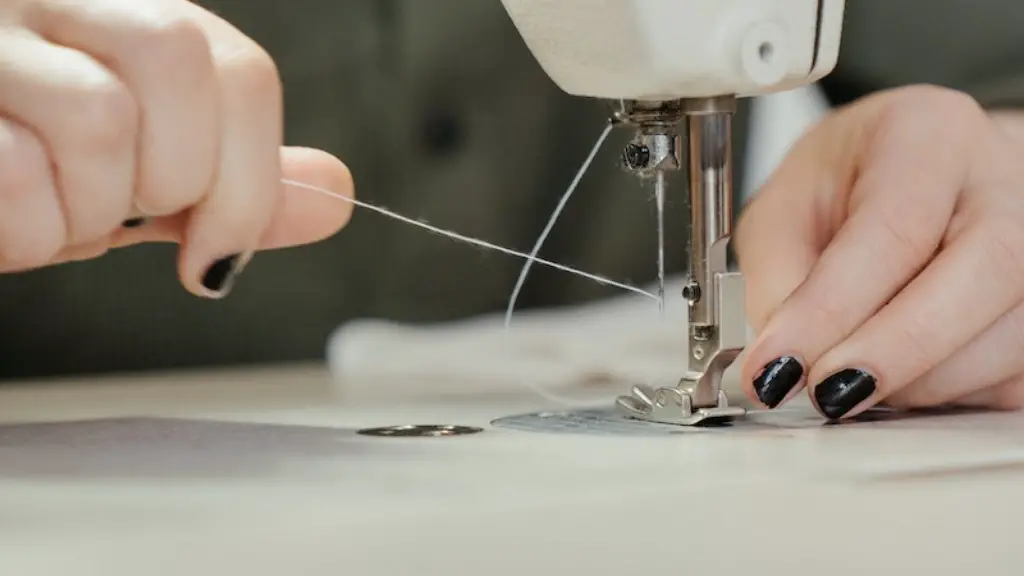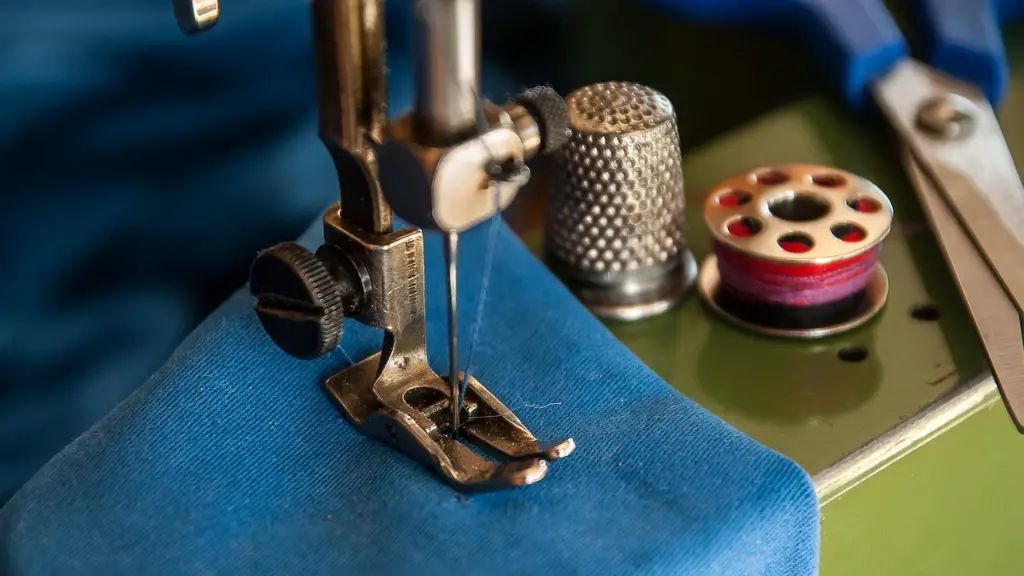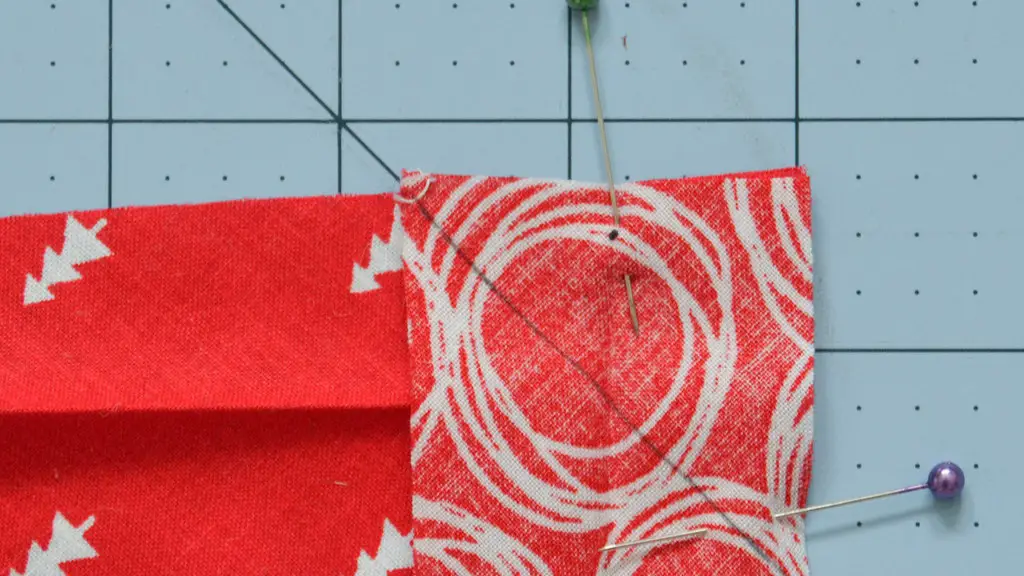Nylon thread is a synthetic, polyamide thread created from polyamide polymers. It’s lightweight, strong and has a pre-lubricated finish and low-friction properties. Because of this, it’s ideal for use in the most delicate and complex textures and patterns in a range of fabric types and even synthetic fabrics.
Many experienced sewers regard nylon thread as a convenient, reliable and durable material for sewing machine projects. It also offers resilience in both home and industrial sewing applications.
Unlike polyester and cotton thread, nylon thread is unaffected by skin oils, sweat and bacteria, making it suitable for delicate fabrics, such as silk and chiffon. This type of thread also works well on heavy-weight fabrics, such as denim, as it will not stretch or lose strength over time.
Nylon thread comes in a wide range of colors, so it’s easy to match the thread to the fabric color. Additionally, nylon thread is much less prone to fraying, unlike other threads. It can be sewn on nearly any home sewing machine, including computerized versions. Like most threads, nylon thread should be changed out when it begins to show signs of wear and tear.
One word of caution for those using a sewing machine with nylon thread—it is much thinner than other common threads. Many machines don’t have the capabilities of paying out the necessary amount of thread as you sew, so you may experience breakage or tension issues. It’s beneficial to use a machine that has adjustable tension to ensure the threads don’t break.
When selecting a thread for a sewing project, inquire about the benefits of using nylon thread over other threads for particular projects. This can help you make the right choice when selecting a thread for your project. It’s also important to know the different types of thread that are available and their advantages and disadvantages when it comes to sewing machine use.
If you have questions regarding the best type of thread for use in your sewing machine, you can consult an expert. Professional sewers often provide helpful advice on which thread types to use and how to use them properly in a sewing machine. They can also help you understand how the various types of fabric may require various types of thread.
Working With Different Fabrics
The variety of fabrics available today make it possible to create a wide range of garments, but they also require the appropriate type of thread in order to be used in a sewing machine effectively. It’s important to consider the type of fabric you’re working with before selecting the thread. Nylon thread is generally suitable for heavier fabrics, such as leather and canvas, as it is both resilient and flexible. However, more delicate fabrics, such as chiffon and silk, may require the use of a finer thread such as silk thread.
Nylon thread is available in various colors, weights and sizes, so you should be able to find a suitable thread for nearly any project. It is also durable and can withstand wear and tear. Nylon thread may be the best option when you’re looking for a thread that is both strong and flexible. It can also provide a lot of strength and flexibility for your sewing projects.
Before selecting nylon thread for a sewing project, you should first consider the fabric you are using and what type of thread is best suited for that particular fabric. Many sewers choose nylon thread for heavy-weight fabrics because it can be used with great success. However, you should always consult an expert if you have questions regarding the best type of thread for your project.
Correct Thread Tension
Once you have selected the appropriate thread for your project, you need to adjust the thread tension on the sewing machine correctly. This is because different types of thread require different levels of tension in order to be used properly. It is important to note that the thread should not be too tight, as this will cause the thread to break easily. Too loose of tension will cause the stitching to be too loose and it may not hold the fabric securely.
Your thread tension should be adjusted and tested. This can be done by running a few test stitches on scrap fabric. It’s important to pay attention to the tension, as it will determine the quality of your stitches and project. For example, a proper tension will ensure that the fabric is held securely and the stitching looks neat and even. Additionally, it’s important to make sure that the thread is not too tight or too loose, as this will affect the quality of the stitching.
In general, nylon thread is suitable for use in a sewing machine, as long as the correct tension is used and the correct size thread is selected. However, it is important to consult an expert if you have any questions regarding thread selection or tension settings. This will help ensure that your sewing project turns out as expected.
Thread Needle Point
Threading the needle correctly is one of the most important tasks in sewing and is essential to the overall success of the project. It’s important that the thread passes smoothly through the eye of the needle and doesn’t pull or tear anywhere. With this in mind, it is essential to select the correct needle size for the project. Generally, the smaller the needle, the smaller the thread; conversely, the larger the needle, the larger the thread. Therefore, for projects using nylon thread, select a size 11 or 12 needle that is suitable for use with the thread size.
Threading the needle is a relatively simple task, but it requires a bit of practice to get used to it. Start by cutting a long piece of thread, about 18-20 inches in length, and thread it through the eye of the needle. Make sure that the thread is properly secured to the needle, as this will prevent slipping or breaking. Then, gently pull the thread through the eye of the needle until it is free. Finally, tie it to the spool and you should be ready to begin sewing.
When it comes to embroidery, the shape of the needle should be taken into consideration. This is because the shape of the hook on the needle guides the thread. It is important to remember that metallic thread may require a special type of needle that is designed to reduce the friction on the thread, as this can cause the thread to break.
Care for Nylon Thread
Most synthetic threads, including nylon, require a little extra care to ensure that they last. After use, you should store your thread away from direct sunlight and place it in a cool and dark place. Additionally, be sure to keep it away from moisture, as this can make the thread weaker and more prone to breakage.
When washing items that have been made with nylon thread, be sure to read the care instructions first. Generally, this type of thread does not need to be washed in hot water and you should use a delicate detergent instead. Additionally, never dry nylon thread in the dryer, as this can weaken the thread and cause it to break. If possible, gently hand-wash or machine-wash the fabric and dry it flat instead.
If you are using a machine to sew items made with nylon thread, it’s essential to pay attention to the needles. Like other fabrics, nylon thread can become weaker over time and will require some extra care. Generally, it’s best to replace the needle after a few hundred stitches in order to maintain the quality of the stitching and prevent the thread from breaking.
Use of Correct Stitch Size
The stitch size used should also be appropriate for the type of thread and fabric used. A light-weight fabric such as chiffon and nylon thread may require a smaller stitch size, while a thicker and heavier fabric such as denim may require a larger stitch size. The size of thread will also determine the stitch size, as thinner thread usually works best with smaller stitches.
It’s important to use the correct stitch size, as this can prevent the thread from breaking and affects the overall quality of the stitch and the garment. Many professional sewers suggest that you use a slightly higher stitch size for heavy-weight fabrics, as this will help the thread stay in place and provide the necessary strength for the garment.
Additionally, when selecting a thread for a project, it is also important to choose a thread that has the necessary strength for the fabric. While nylon thread is generally a great choice for heavier fabrics, it may require a slightly larger stitch size. For lighter fabrics, it is important to select a thread that is fine enough to provide the needed flexibility and strength.
When selecting a thread for a project, it’s important to consider the fabric and the type of thread that will work best for that particular fabric. Nylon thread is a great option for heavier fabrics, as it is both strong and flexible. However, it’s important to adjust the thread tension and stitch size accordingly in order to ensure the best results. It’s also beneficial to consult an expert if you have any questions regarding thread selection or tension settings.
